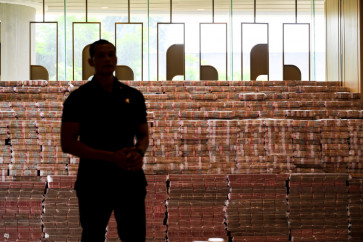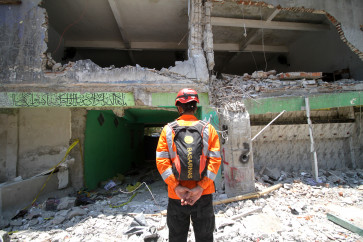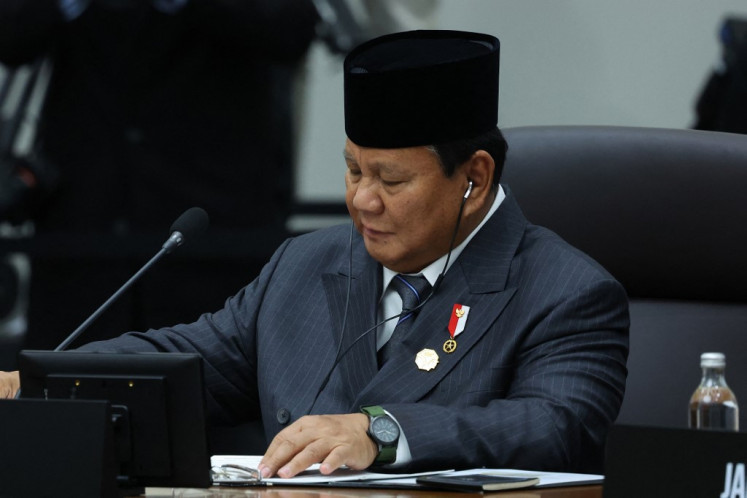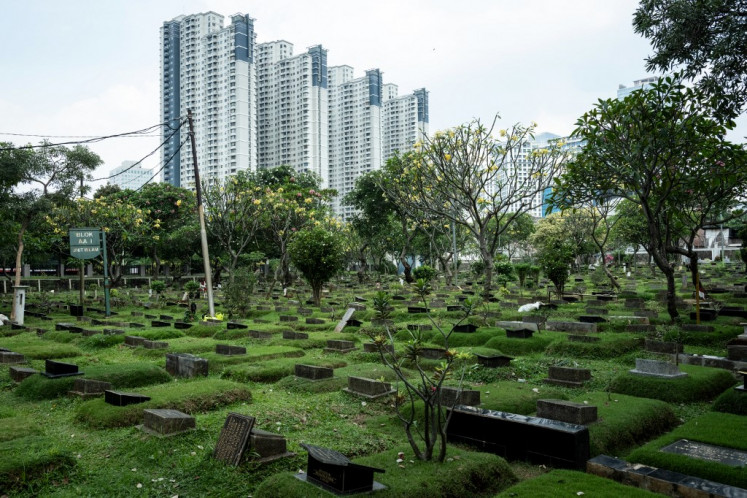Popular Reads
Top Results
Can't find what you're looking for?
View all search resultsPopular Reads
Top Results
Can't find what you're looking for?
View all search resultsExecutive column: RI needs talent, internet connectivity to develop tourism industry
Vikas BholaThe tourist sector has become a new engine of economic growth amid slowing domestic spending and cooling exports, following heightened global economic turbulence
Change text size
Gift Premium Articles
to Anyone
Vikas Bhola
The tourist sector has become a new engine of economic growth amid slowing domestic spending and cooling exports, following heightened global economic turbulence. The government has set a plan to develop 10 super-prioritized tourist destinations, dubbed the new Balis, to support such a strategy. It also expects to welcome 20 million foreign tourists into the country.
The Jakarta Post's Adrian Wail Akhlas sat down recently with Vikas Bhola, Booking.com’s regional director in South Asia Pacific, to learn about his perspectives on the rapidly growing travel industry in the region and in Indonesia. He shared his views about the country’s tourist industry and development, as well as his company’s strategy to benefit from the sector’s expansion as Booking.com aims to promote sustainable travel and boost Indonesia's tourism.
Booking.com has brought travelers from around the globe to the doorsteps of 24,000 accommodation partners here in Indonesia as they aim to promote sustainable travel and boost Indonesia's tourism sector.
The following is an excerpt of the interview.
Question: Where do you see the Indonesian market going forward in the tourist industry and what is your take on customer behavior in this country?
Answer: Indonesia’s tourist industry is growing superfast, with fundamentals such as GDP growing fast, as well as per capita income. We see a direct correlation between GDP and travel anywhere in the world. There is all it begets here in Indonesia, so travel is poised for growth.
Our research shows that more than half of travelers in Indonesia are really looking for experiences, like, more than just a sheer hotel. They are actually looking for experiences that exemplify travel, nurture them into a new individual and they want to learn from their travels as well.
So experiences could be just going to Disneyland or on a hike somewhere in the mountains, but experience could also be that you meet local communities and have a meal with them. More than half of Indonesians, based on our research, are longing for experiences, activities and attractions. Thus, we believe that accommodation is a really important part of traveling.
Other than that, sustainability is becoming more and more important for Indonesian travelers. Transportation that emits lower emissions or staying in a sustainable environment really resonates with Indonesian travelers.
As the Indonesian tourist sector is painted by tight competition between several online travel platforms, including both local and regional players, what is Booking.com’s strategy to be different than the others?
Competition in the tourist industry in Indonesia is obviously fierce, but we embrace it as it helps us to differentiate and come up with a unique proposition for our customers to enjoy.
I think competition goes along with coopetition. For example, we collaborate with many companies that we could probably call our competition, such as Grab. We give their app access to our service and Grab provides their ride-hailing service to us.
Other than that, our business model here in Indonesia allows customers to book and pay later at the merchants, as we know Indonesia has low credit card penetration.
We also went into Indonesia’s second tier cities and communities to get more accommodation partners because we want to give them the power of the internet. As a result, we currently have 24,000 accommodation partners, a growth of 30 percent this year compared to last year, of all kinds of accommodation here in Indonesia.
Our general philosophy is that we want to go into the market and work with our partners, and help build that ecosystem where the partners grow their topline and their bottom line.
We help them do that by educating them with the power of the internet and providing them with tools and resources to really help the ecosystem get built, such as in Raja Ampat in West Papua and Toraja in South Sulawesi, to name a few.
We are also extremely local in terms of language capability because, in fact when you do machine translations they are never perfect. Thus, we have a team that actually perfects our narrative, language capability and content so customers book and feel that even though the platform is global, it has a local flavor.
According to the e-Conomy Southeast Asia study published last week by Google, Temasek and Bain & Company, the Indonesian online travel business is expected to reach US$10 billion this year and $25 billion by 2025, are there any specific strategies to boost Booking.com’s business?
We will form different kinds of products for customers. The other thing that we will focus on is partnerships, so we will partner with more scaled companies to actually provide their customers with the experience of travel as well as because they also have the obligation to provide more services to their customers.
We are already in talks with many companies on strategic partnerships, as they will enhance our playbook even better, but at the same time we are onboarding tons of apartments, vacation rentals, guesthouses and all kinds of unique accommodation as well.
So what is the state of Indonesia’s tourist industry across Southeast Asia?
There are really big markets when it comes to travel. In Southeast Asia, there are many markets, it is not something that not a lot of people know but Thailand has 14 million visitors a year and the country is one of the largest travel destinations in the world. However, there is real excitement in Southeast Asia because there are many fast-growing tourist industries, such as Indonesia, Vietnam and Thailand.
What are the challenges faced by Indonesia in the tourist industry and what do you suggest Indonesians do to boost the industry?
There are several challenges here in Indonesia, namely talent, lack of infrastructure and internet connectivity, as well as marketing in general.
First, talent is hard to combine where everybody wants the best engineers and they want the best people to work with. My sense is that the country need more talent to accelerate faster and grow to the next level, but the bigger challenge is how to surface the talent and how to nurture them in terms of education.
The second part of the challenge is infrastructure. Think of it as a key and I think the Indonesian government initiatives are very good. As infrastructure improves, I think that will help quite a lot to seamlessly connect different parts of the country.
Other than that, half of the Indonesian population has no internet connection. As it goes further, e-commerce will rise and empowerment will also rise, and that will beneficial.
Last, marketing in general and know-how about wonderful Indonesia is so important as more people come into the country.










